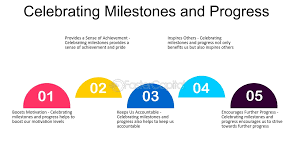Setting achievable goals is a fundamental aspect of personal development, serving as a roadmap that guides individuals toward their aspirations. In an increasingly fast-paced world, where distractions abound and expectations can often feel overwhelming, the ability to define clear, attainable objectives becomes paramount.
Effective goal-setting not only provides direction but also fosters motivation, allowing individuals to track their progress and celebrate small victories along the way. This article explores the essential principles of crafting realistic goals that align with one’s values and ambitions.
By employing the SMART criteria—Specific, Measurable, Achievable, Relevant, and Time-bound—individuals can establish a framework that enhances their chances of success.
Additionally, the article will delve into the psychological benefits of goal-setting, including increased self-efficacy and resilience, as well as practical strategies for overcoming common obstacles that may arise during the personal development journey.
Ultimately, understanding the art of setting achievable goals empowers individuals to take meaningful steps toward personal growth, leading to profound changes in their overall well-being and life satisfaction.
Identify specific, measurable personal growth objectives.
To create effective personal growth objectives, one must begin by clearly defining what areas of life they wish to improve. This could range from enhancing professional skills to improving emotional well-being or physical health.
Once a focus area is established, breaking it down into smaller, actionable steps is essential. For example, instead of simply stating the goal to “get fit,” one could specify, “exercise for 30 minutes at least four times a week for the next three months.” This level of detail provides both clarity and direction, enabling the individual to track progress over time.
Measurement is another critical component of setting these objectives. Each goal should include quantifiable criteria to assess success. Rather than vague ambitions, the individual should consider incorporating metrics such as performance reviews, weight loss targets, or completion of educational courses.
Regularly reviewing these metrics not only fosters accountability but also allows for adjustments as needed, ensuring that the personal growth journey remains dynamic and responsive to changing circumstances or insights.
Regularly evaluating progress against these timelines allows for adjustments as needed, ensuring that individuals stay on track while remaining adaptable to changes in their circumstances or priorities.
Break goals into manageable, actionable steps.
To ensure that goals remain attainable, it is vital for individuals to systematically dissect broader objectives into smaller, more manageable tasks. This method allows for a clear roadmap that can guide the individual step-by-step toward their ultimate aim.
For instance, if someone aspires to write a book, they might start by setting a target to draft a certain number of pages each week, followed by planning specific writing sessions each day. By establishing these incremental benchmarks, the individual can maintain motivation and recognize achievements along the way, reinforcing their commitment to the overarching goal.
Additionally, individuals should prioritize their tasks based on urgency and importance, creating a timeline that reflects when each step needs to be completed. This approach not only helps in organizing efforts but also allows for flexibility in adapting to unforeseen circumstances.
By regularly revisiting and adjusting the action plan, the individual can stay engaged and responsive to their progress, ensuring continual development and sustained momentum toward achieving their overarching goals.

Download our free Goal Planner
Establish a realistic timeline for achievement.
When determining a realistic timeline for achievement, individuals should consider their current commitments and resources. This involves assessing how much time they can realistically dedicate to working on their goals each week.
By taking a comprehensive inventory of their daily schedule, they can identify blocks of time that can be reserved for focused effort on their personal development. It’s crucial to build in buffers to accommodate unexpected interruptions or challenges that may arise, ensuring that the timeline remains achievable and not overly rigid.
Moreover, individuals should set specific deadlines for each of their smaller tasks, aligning them with their overall timeline. This can be done by using a calendar or planning tool to visualize deadlines and progress.
By breaking the timeline into phases, they can celebrate small victories along the way, which helps to sustain motivation and provides a sense of accomplishment. Regularly evaluating progress against these timelines allows for adjustments as needed, ensuring that individuals stay on track while remaining adaptable to changes in their circumstances or priorities.
Regularly review and adjust progress as needed.
To effectively navigate the journey of personal development, it is essential for individuals to conduct regular evaluations of their progress. This entails setting aside time to reflect on what has been achieved versus what still needs attention.
During these review sessions, it is beneficial to assess both successes and obstacles encountered along the way. By analyzing the outcomes of their efforts, individuals can identify patterns that may suggest areas for improvement or adjustments to their approach. This ongoing reflection empowers them to stay aligned with their goals and remain flexible in their strategies.
Adjustments should be made based on the insights gained during these evaluations. If certain methods prove ineffective or if goals need to be recalibrated due to shifting circumstances, individuals should not hesitate to pivot their strategies.
This could involve reallocating resources, redefining timelines, or even modifying the goals themselves to better reflect current priorities and capabilities. By maintaining a dynamic approach to goal-setting, individuals can ensure that their personal development journey remains relevant and achievable, fostering sustained growth and resilience in the face of challenges.
Celebrate milestones to maintain motivation.
Acknowledging milestones serves as a vital component in preserving motivation throughout the personal development journey. By recognizing both small and significant achievements, individuals can cultivate a sense of accomplishment that fuels their drive to continue progressing.
This practice encourages individuals to celebrate not just the end goals but also the incremental steps leading up to them. Whether through simple rewards, journaling successes, or sharing achievements with supportive peers, these celebrations reinforce the value of persistence and foster a positive mindset.
Integrating milestone celebrations into a routine can enhance commitment to personal goals. Individuals may choose to establish a specific timeframe for evaluation—weekly, monthly, or quarterly—during which they reflect on their progress.
By setting these checkpoints, they can create opportunities for celebration that remind them of their capabilities and reinforce their determination. This approach not only boosts motivation but also helps individuals maintain a forward momentum, making the journey feel more fulfilling and less daunting.
In conclusion, setting achievable goals for a personal development journey is a pivotal step toward sustainable growth and fulfillment. By encouraging individuals to assess their current situation, define clear and measurable objectives, and break these goals down into manageable steps, they can create a roadmap that not only guides them but also motivates them along the way.
Additionally, embracing flexibility and celebrating small wins will foster a positive mindset, making the journey enjoyable and rewarding. Ultimately, with a strategic approach and consistent effort, anyone can navigate their personal development journey successfully and unlock their full potential.



